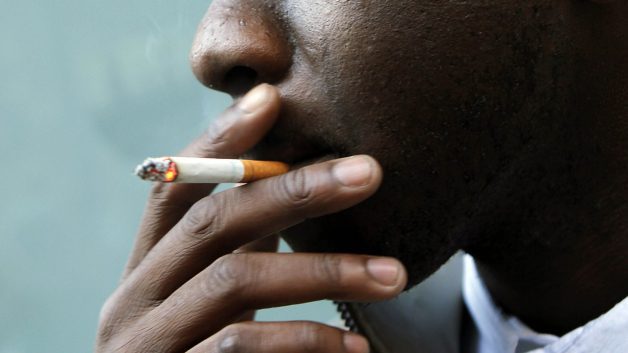The fight against tobacco consumption must be prioritized by West African health authorities because of the high number of deaths, according to a Senegalese researcher.
Some eight million people worldwide, including 500,000 in Africa and 700,000 non-smokers, die each year because of the consequences of smoking. It is then one of the “great current threats to global health,” said on Tuesday, April 22 in Saly (80 km from Dakar), the Executive Director of the Consortium for Economic and Social Research (CRES), Abdoulaye Diagne.
Mr. Diagne opined that smoking “is more deadly than Covid-19,” the pandemic that has caused nearly six million deaths since 2019. He therefore called on public authorities to take adequate measures to control tobacco consumption.
“Because of its cost in human lives, smoking must be at the forefront of the fight against health scourges in Africa,” said the director of CRES, at the initiative of a two-day national workshop where various Senegalese and African actors will “reflect on the administrative constraints” for the implementation of the guidelines on tobacco taxation in West Africa.
Through this didactic meeting, CRES seeks to create a synergy of action to support the implementation of the directives of sub-regional organizations, including the West African Economic and Monetary Union (UEMOA) and the Economic Community of West African States (ECOWAS).
The latter notably adopted a new directive in December 2017 to tighten tobacco taxation policy. It is “based on a set of theoretical arguments and empirical evidence” setting “a minimum ad valorem tax rate of 50 percent and a specific tax of two US cents per stem.”
Taxation, an “important lever”
In addition, the representative of UEMOA, Assa Kabo Sidikou, stressed that the harmonization of legislation is “a main objective” of his organization. While the scourge affects “largely young people,” she noted that women, especially those who are “pregnant” and their “infants,” are not also spared. It is therefore urgent to increase the taxation of tobacco, in the order of “100 to 150%,” which “could be a (measure of) dissuasion” for consumers, she acknowledged.
At this level, the representative of the Senegalese Ministry of Finance and Budget said that his country has already “transposed the UEMOA directive with a tax of 65 percent” where the recommendation of the World Health Organization (WHO) is 70 percent on excise duties on tobacco sales prices.
In any case, “tobacco causes an economic disaster in the countries” beyond the health disaster, said the representative of the Senegalese Ministry of Health. However, he said that “the other challenge” of West African States is to counteract “emerging products” of tobacco (chicha and others) that are “invading our markets.” For him, manufacturers “target our children” today where the age of initiation to smoking “has dropped from ten to seven years.”
The Senegalese official went on to argue– giving this image– that “If communicable diseases are a tree, tobacco is the trunk. In this context, taxation is one of the best levers to “reduce consumption,” he said, citing the CCLAT, the WHO Framework Convention on Tobacco Control. Moreover, he advocated, its activation in West African countries, through the implementation of regional guidelines, should allow “financing other diseases and other sectors.”
ODL/cgd/fss/abj/APA


